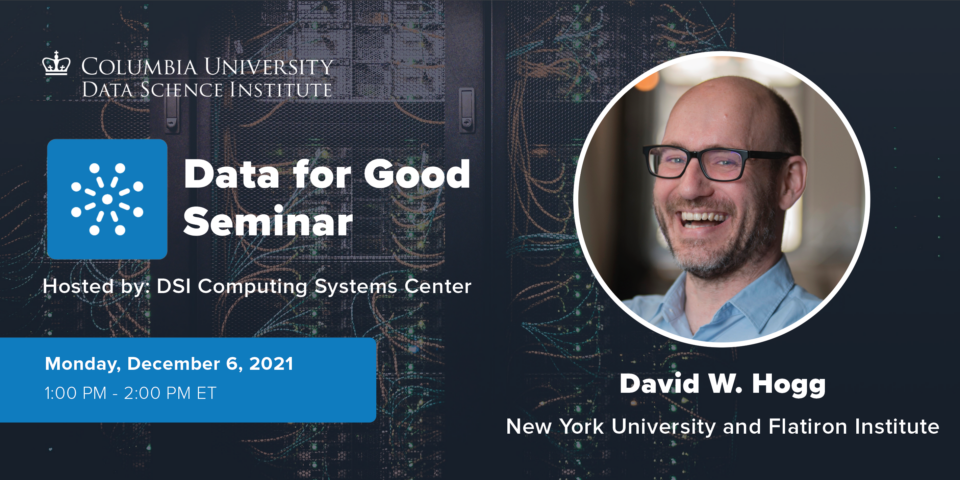Data for Good Seminar: David W. Hogg, NYU and Flatiron Institute
Monday, December 6, 2021
8:00 am - 9:00 am

Monday, December 6, 2021
8:00 am - 9:00 am


Hosted by the DSI Computing Systems for Data-Driven Science Center

David W. Hogg, Professor of Physics and Data Science, Department of Physics, New York University; and Group Leader, Center for Computational Astrophysics, Flatiron Institute.
Computing Systems Center Co-Chairs:
Monday, December 6 (1:00 PM – 2:00 PM ET) – Virtual
Physical laws obey strict symmetries, such as rotational, translational, permutation, and coordinate symmetries, along with restrictions related to dimensions (or units). These can be enforced exactly by requiring models to be written according to geometric and algebraic rules. I demonstrate with toy examples that these ideas can be implemented simply, and that they help with accuracy and generalizability of existing machine-learning methods. More importantly these ideas might have an impact on interpretability, explainability, or symbolic approaches to learning with data. I’ll say a bit about causal structure too, since the strictly symmetric part of a data analysis is often hidden in a latent space that’s only observed indirectly. (Work with Soledad Villar, JHU and others.)
Bio: David W. Hogg is an astrophysicist at New York University’s Center for Cosmology and Particle Physics and the Group Leader for the Astronomical Data Group at the Flatiron Institute’s Center for Computational Astrophysics. His research has ranged across fundamental cosmological measurements, galaxy formation at high redshift, stellar dynamics in the Milky Way, precise measurement of stellar element abundances, and extra-solar planet discovery. His work includes a significant engineering component, in areas of instrument calibration, automated data analysis, and statistical inference. He is a developer and supporter of open-source software projects and open-data initiatives. He is involved in the NYU Center for Data Science and also spends a part of each year at the Max Planck Institute for Astronomy in Heidelberg, Germany, where he is a visiting member of the faculty. Hogg earned his Ph.D. in physics from Caltech and his bachelor’s in physics from MIT. He was a long-term member of the Institute for Advanced Study in Princeton, N.J., where he became involved in the Sloan Digital Sky Survey. Hogg joined New York University in 2001 and the Flatiron Institute at its founding in 2017.